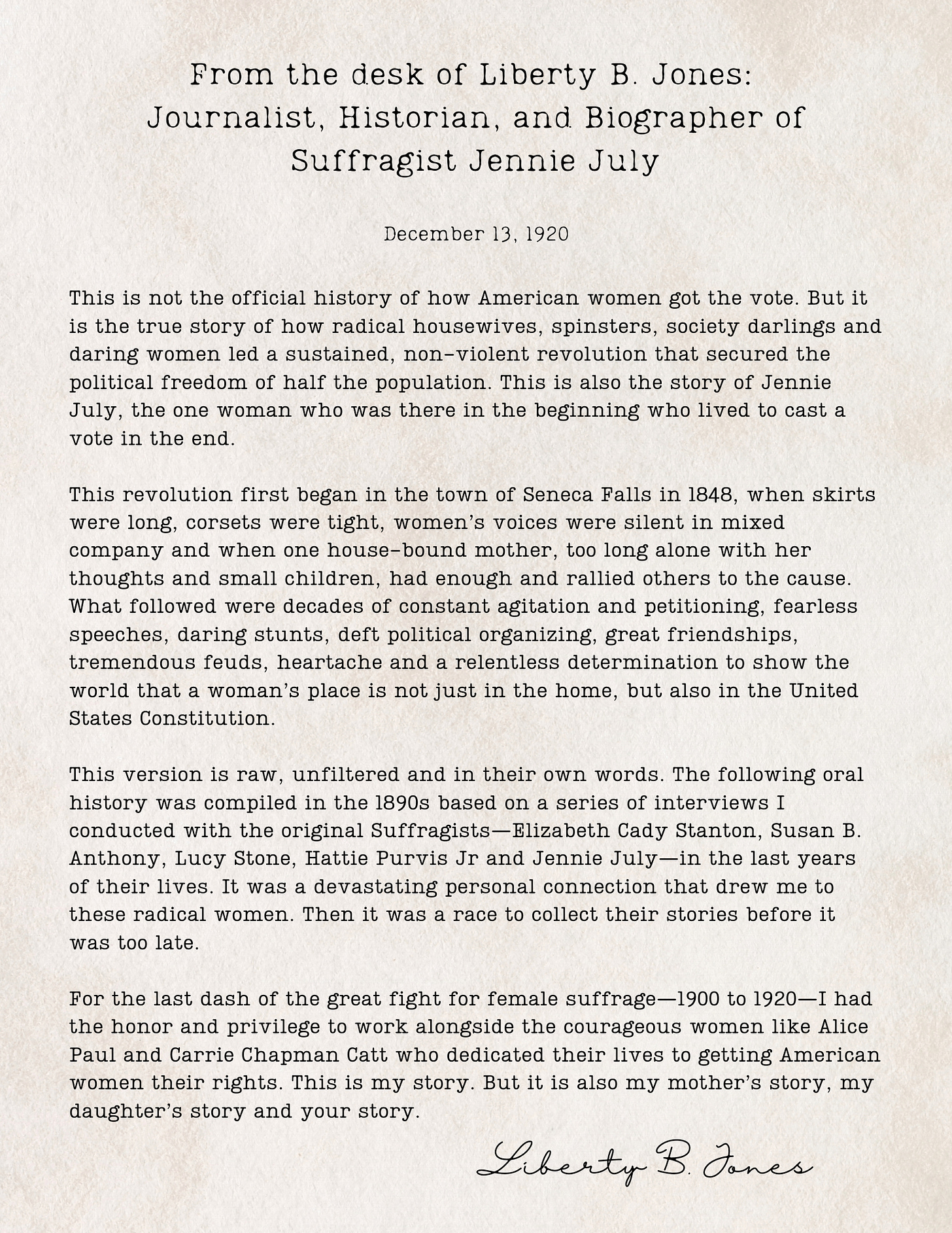The Real Housewives of the Revolution
A sneak peek of my novel about the women who got us the vote
I have something special to share. Something fictional. Today I’m sharing the first chapter of a novel I’m calling The Real Housewives of the Revolution. I don’t have a publisher for this…yet. In fact, this is still a rough draft. But I’ve been working on it for so long and I’m ready for it to see the light.
The set up: Jennie July is a fictional character who I imagine is the only woman who attended the Seneca Falls convention and who lived to cast a vote after the 19th amendment in 1920. The novel is the story of her life—and it includes a cast of real life characters including Suffragists Lucy Stone, Elizabeth Cady Stanton, Susan B. Anthony and others. It’s the story of how women got the vote in America. But it’s also the story of a woman’s life and how the political is so deeply personal.
I’m sharing the full introduction and first chapter with my paid subscribers. Free subscribers will get a little less (with the option to upgrade of course). I appreciate you all so much. XOXO!
Happy reading!
INTRODUCTION
CHAPTER ONE
Jennie July: "The girl who lived"
Woman was created to be a wife and a mother; that is her destiny. To that destiny all her instincts point, and for it nature has specially qualified her. Her proper sphere is home, and her proper function is the care of the house-hold, to manage a family, to take care of the children, and to tend to their early training….
…She has all the qualities that fit her to be help-meet of man, to be the mother of his children, to be their nurse, their early instructress, their guardian, their life-long friend; to be his companion, his comforter, his ministering angel in sickness; but as an independent existence, free to follow her own fancies and vague longings, for her own ambition and natural love of power, without masculine direction or control, she is out of her element, and a social anomaly, sometimes a hideous monster.[i]
—Orestes A Brownson in the 1840’s
Massachusetts
April, 1848
Everything that ever happened to me happened because one night I saw Lucy Stone speak. That Spring, in 1848, I was Jennie Malone—it was the name I was born with, the name of the man I belonged to and the name I would soon discard.
It was a reasonable expectation that my life would be like that of my mother, and her mother before her and all the girls born back then: a girlhood designed to make me suitable for marriage, the tedious and grueling labor of motherhood that will crush my spirit, housework that dulled me even more, until eventually I would die and my headstone would simply say “wife, mother.”
But I was born hungry and restless, reckless and fearless. I did not have the temperament for the traditional work of womanhood. I could not sit still long enough to embroider, I did not have the patience to pay attention to dinner on the stove, I could not keep my thoughts to myself. In another age, I would have been burned as a witch. This would have been a very different story had fate not conspired to give me an escape from all that.



